Our Team
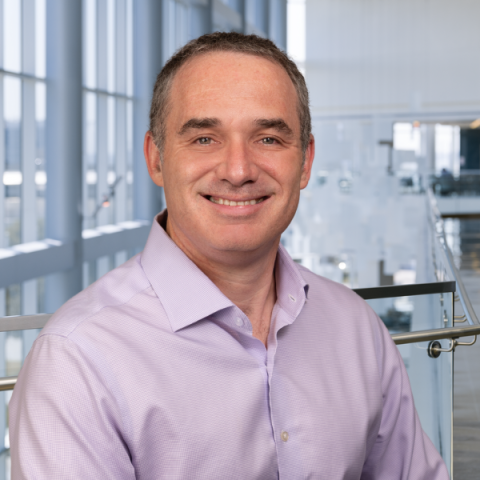
Michael Shiloh, M.D., Ph.D.
Principal Investigator
Dr. Michael Shiloh is an Associate Professor with a joint appointment in the Departments of Internal Medicine and Microbiology. He studies the interactions between Mycobacterium tuberculosis (M. tuberculosis) and the innate, mucosal and neuroimmune systems. He is a member of the Molecular Microbiology and Immunology training programs in the Graduate School of Biomedical Sciences an Investigator in the Peter O’Donnell Jr. Brain Institute.
Dr. Shiloh first developed an interest in biomedical research while studying chemistry and enzymology at Penn State University. As part of the Tri-Institutional M.D.-Ph.D. program in New York City, he graduated from Cornell University with an M.D. and Ph.D. in Immunology with a focus on innate immunity. Dr. Shiloh continued his training at the University of California San Francisco, completing medical residency and infectious diseases fellowship. It was there that his interests in immunology merged with his interest in microbiology, and he applied his efforts towards understanding the global pandemic of tuberculosis, a research focus he continued when he joined the faculty at UT Southwestern.
Dr. Shiloh’s long-term goals are to improve our understanding of M. tuberculosis pathogenesis. For example, his team identified mucosal microfold cells as a portal of entry for M. tuberculosis and characterized the pathogen-host molecular interactions that mediate M. tuberculosis invasion into microfold cells. Within infected macrophages, his lab demonstrated an important role for the host enzyme heme oxygenase and its product carbon monoxide in M. tuberculosis pathogenesis and identified the mammalian proteins cGAS and Smurf1 as vital for the macrophage response and activation of autophagy in response to M. tuberculosis infection. Most recently, his lab described a mechanism for airway nociceptive neuron activation and cough induction by an M. tuberculosis lipid. Collectively, Dr. Shiloh’s research aims to generate a better understanding of the M. tuberculosis infectious cycle, from the role of bacterial-induced cough in mediating transmission, to microfold cell entry and finally intracellular survival.
In addition to his research, Dr. Shiloh is also an attending consulting physician in infectious diseases at UT Southwestern’s Clements University Hospital and Parkland Hospital.
Outside of work, Dr. Shiloh enjoys hiking, running, playing soccer, traveling, and cooking.
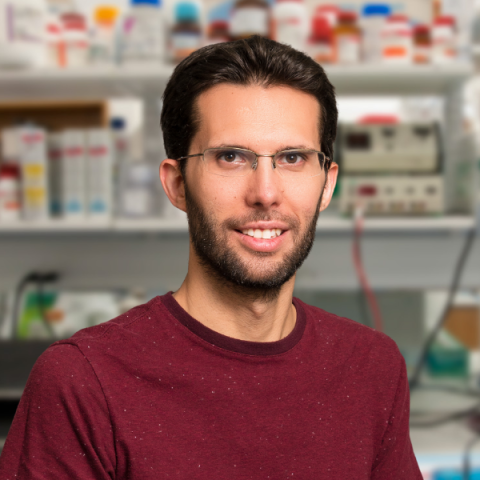
Samuel Alvarez Arguedas, Ph.D.
Postdoctoral Researcher
Originally from Spain, Dr. Alvarez Arguedas holds a bachelor's and a master's degree in cell and molecular biology. He obtained his doctoral degree from the University of Zaragoza based on the study of the in vivo transcriptome of M. tuberculosis and the use of a new vaccine candidate as immunotherapy for bladder cancer. In 2018, he moved to Dallas to start his postdoctoral research project: studying and characterizing the role of microfold (M) cells in the development of mucosal immunity against airway pathogens. Outside of work, he enjoys sports - especially basketball and running, spend time with his wife trying new restaurants, and making new friends while reading books.
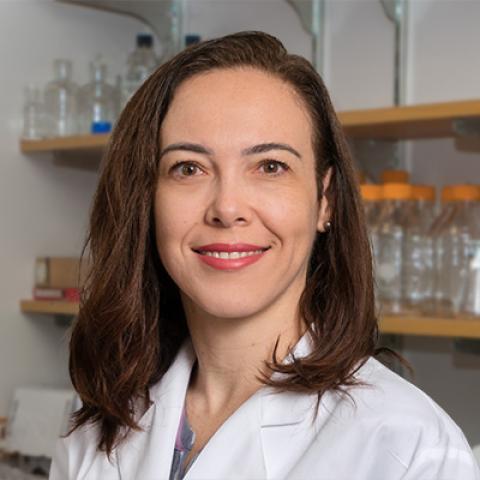
Priscila Campos, Ph.D.
Assistant Instructor
Originally from Brazil, holds a master’s degree in biochemistry and a doctoral degree in molecular biology, both from the Federal University of Minas Gerais. After joining the Shiloh Lab as an Assistant Instructor in 2019, she advanced to Instructor in 2021. Ever since the early stages of her career, she has been driven by a profound curiosity to unravel host-pathogen interactions, exploring a range of pathogenic microorganisms, including Trypanosomatids and bacteria such as Brucella and Mycobacteria. Outgoing and dedicated, she is always eager to lend a helping hand to her fellow lab mates. Among her colleagues, she has earned legendary status for her ability to create the most tantalizing carrot cake and craft caipirinhas that are unparalleled in their deliciousness. Feel free to consult Dr. Shiloh, who will enthusiastically vouch for her culinary skills.
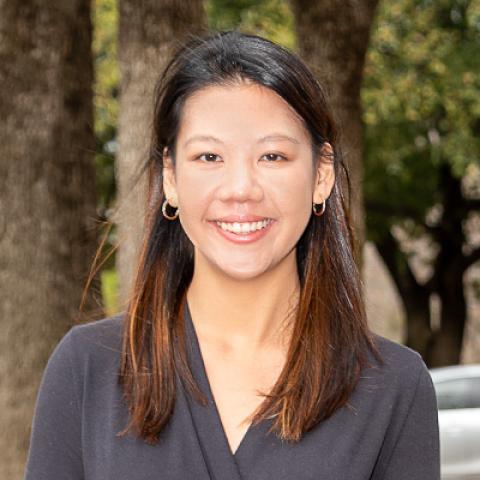
Victoria Eknitphong, M.S.
Research Associate
After graduating from Colorado State University (CSU) in 2014 with her master’s degree in microbiology, Victoria Eknitphong joined Dr. Anne Lenaerts' and Dr. Gregory Robertson’s research team at Colorado State University. During her time there, she engaged in several pre-clinical drug testing trials. They used diverse murine models that closely mimicked the active, chronic, and necrotic phases of M. tuberculosis infection. To further evaluate novel compounds and drug regimens for M. tuberculosis infections, she engaged in PK/PD analysis, MIC assays, and drug resistance studies. Having joined the Shiloh Lab in 2019, she has been developing a humanized in-vitro model of M. tuberculosis and non-tuberculous mycobacteria (NTM) infections using a microfluidic "lung-on-a-chip" device to assess the efficacy of novel host-directed treatments. Beyond her scientific pursuits, she enjoys gaming, producing music, hiking, camping, and watching reality TV shows.
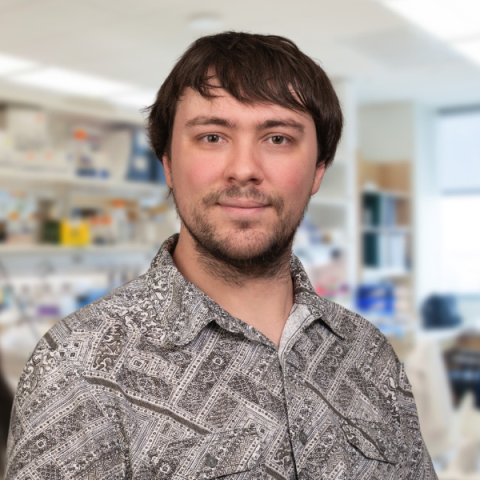
John Neff
Graduate Student
John Neff holds a bachelor's degree in biochemistry and genetics at Texas A&M University, where he studied the ability of small molecule metabolites to compensate for the genetic loss of phospholipid synthesis in the mitochondria. Currently he is pursuing a doctorate in molecular microbiology at UT Southwestern. His work focuses on identifying host factors essential to the pathogenesis of M. tuberculosis through the use of a reactive small molecule screening system. His research interests include infectious disease and antibiotic resistance. After completing his doctorate, he hopes to be involved in research on the treatment and prevention of human diseases with high mortality rates.
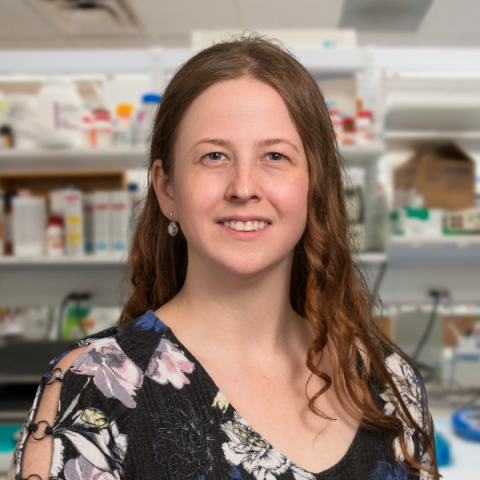
Katheryn Rahlwes, Ph.D.
Postdoctoral Fellow
As a post-doctoral researcher, Dr. Rahlwes focuses on understanding the role of the ubiquitin-proteasome, specifically deubiquitinases, in M. tuberculosis infection. She first started working with Mycobacteria during her graduate studies at the University of Massachusetts, and she is adding to that repertoire by focusing on host-pathogen interactions. In her free time, she enjoys taking nature walks, playing video games, and playing harp.
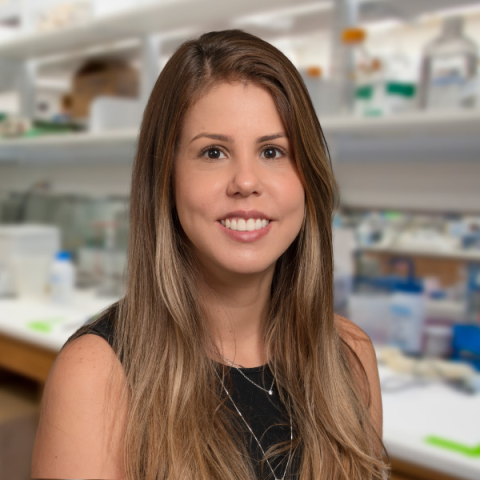
Beatriz Dias, Ph.D.
Postdoctoral Fellow
Dr. Dias is a cell biologist who is passionate about cell host-pathogen interaction, encompassing various aspects from cell biology to in vivo experiments. She completed her master's and doctoral training at the Gonçalo Moniz Institute/FIOCRUZ in Brazil. During this period, her research focused on investigating the mechanisms underlying the interaction between Leishmania parasites and macrophages, mainly focused on understanding the role of autophagy in Leishmania infection. To further develop her scientific skills, she moved to the United States in 2020 and joined the Shiloh Lab as a postdoctoral fellow, where her goal has been to unravel the role of the retromer complex component SNX5 in M. tuberculosis antigen presentation and anti-tuberculous host defense. Outside the lab, she enjoys practicing yoga, reading, traveling, and watching tele
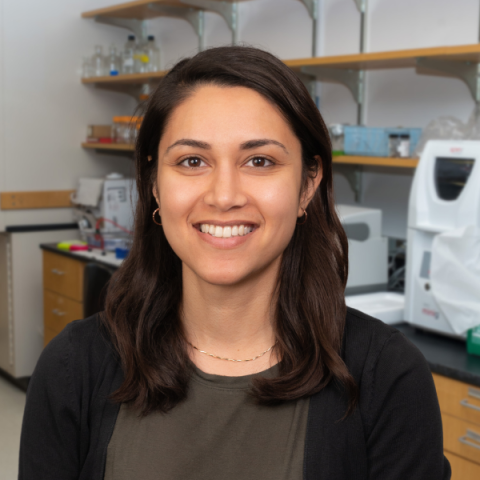
Kubra Naqvi, Ph.D.
Postdoctoral Fellow
As a postdoctoral researcher in the Shiloh lab, Dr. Naqvi's project is focused on the role of M. tuberculosis lipids in cough reflex activation and transmission. She grew up in Northern Virginia but moved to New York to complete her bachelor's degree in biotechnology and molecular bioscience at the Rochester Institute of Technology. Afterward, she moved to Texas for her doctoral training in experimental pathology at the University of Texas Medical Branch, where she studied mechanisms of innate immune dysfunction during M. tuberculosis and HIV co-infection. Outside the lab, she enjoys baking, painting, and catching up on reality TV!
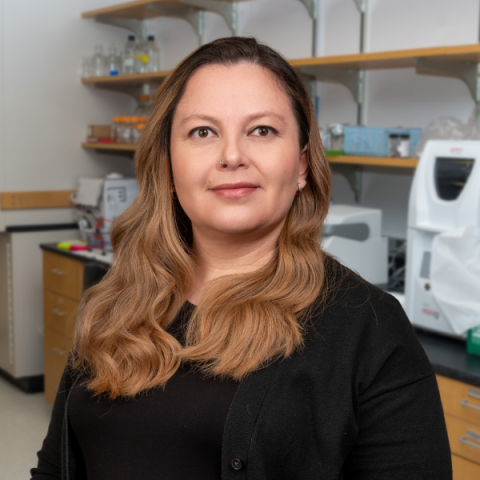
Paola Parraga, Ph.D.
Postdoctoral Fellow
Dr. Parraga's research revolves around unraveling the intricate mechanisms underlying the autophagy of M. tuberculosis. Specifically, she focuses on comprehending the roles played by ion channels and G-protein coupled receptors (GPCRs) in this context. Born and raised in Ecuador, she holds a bachelor's degree in biotechnology engineering from the Escuela de las Fuerzas Armadas-ESPE, and a master’s degree in microbiology from the University of Illinois Urbana Champaign, which was supported by the Fulbright Program. Motivated by a strong desire to delve deeper into scientific research, she completed doctoral degree in microbiology at the same institution, where her research revolved around exploring the impact of nutritional immunity on pathogens during infection and deciphering the adaptations developed by Staphylococcus aureus to counteract this host response. Outside of work, she enjoys spending time with her family and pups, gardening, and crafting.
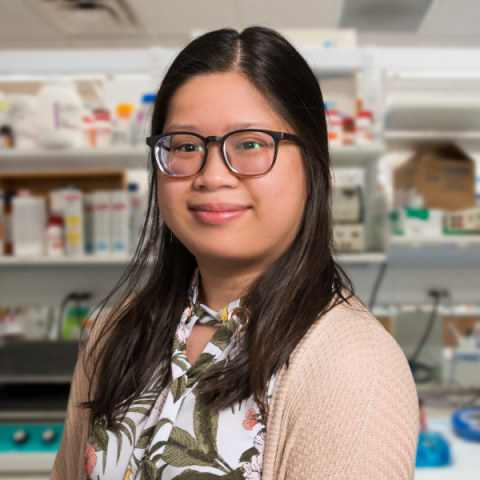
Giaochau Nguyen
Graduate Student
Giaochau Nguyen holds a bachelor's degree in microbiology from the University of Texas at Austin, where she studied the structure and function of a homologous recombination DNA repair complex, BTRR. She joined the molecular microbiology graduate program at UT Southwestern in 2022, where her work focuses on identifying the neuronal mechanism of action of sulfolipid-1, a cough-inducing molecule secreted by M. tuberculosis. In her free time, enjoys reading and crocheting.

Lois Warden
MSTP Student
Originally from Bryan, Texas, Lois Warden holds a bachelor's degree in biochemistry and molecular biology with a minor in Spanish from Trinity University. As a student in the Medical Scientist Training Program (MSTP), her project is to identify and characterize the molecular mechanisms by which M. tuberculosis causes cough by focusing on the neuro-immunology and pharmacology of nociceptive agonists produced by M. tuberculosis. Outside of the lab, she enjoys running, reading, and traveling.
Our team is a hardworking, collaborative group.
We're always looking for passionate researchers to contribute to our team. As we work to ultimately to develop new vaccines and treatments for Mycobacterium tuberculosis.